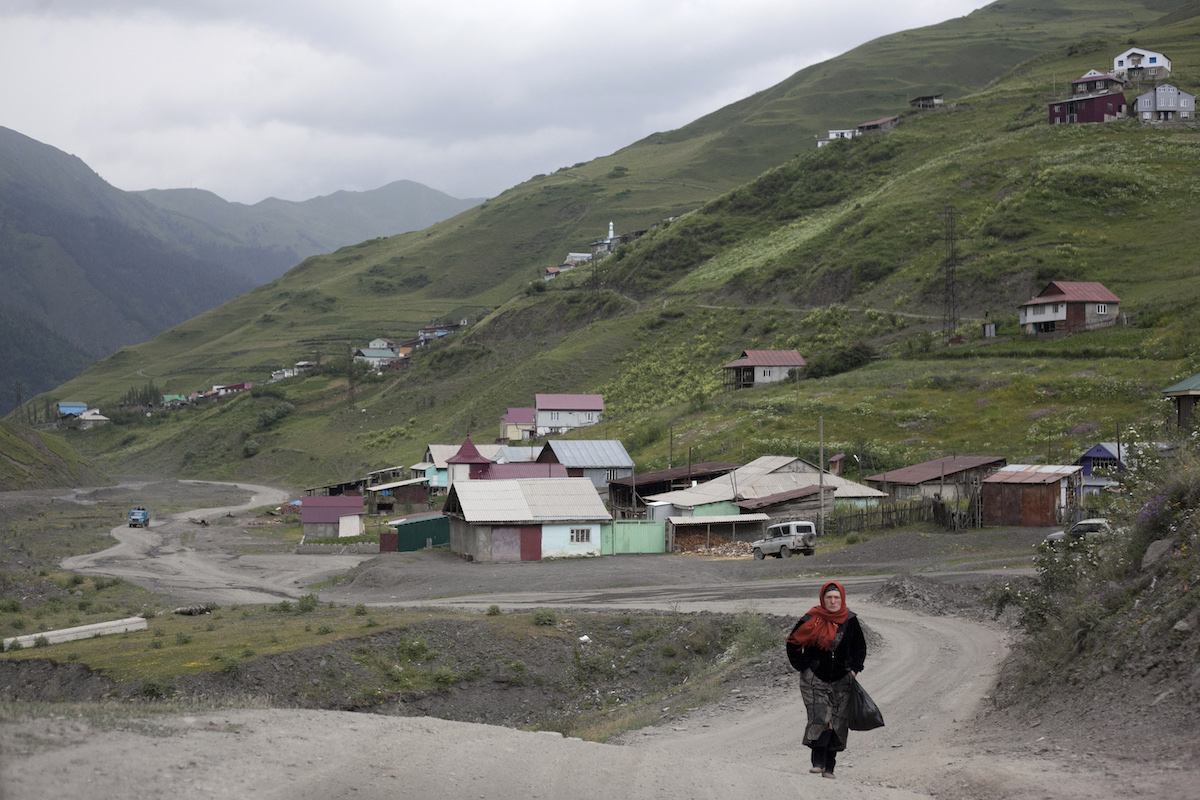Domestic violence in the North Caucasus – tradition above the law

The Russian media has been gripped by the story of a seven-year-old girl, Aisha Azhigova, who was crippled by constant beatings of the aunt that raised her. Aisha was born and lived in Ingushetia, a republic within Russia in the North Caucasus.
The inhumane treatment of this child has made the discussion of domestic violence in Russia in general and in the Russian North Caucasus in particular an object of the media’s attention.
Novaya Gazete writes that child abuse is not uncommon in this region of Russia.
The publication also wrote about about a resident of a Chechen village, Aidarbek Shamayev, who at the age of 31 decided to remarry after a divorce: he needed a housewife and four young children needed a mother.
As a wife, Aidarbek chose a young fellow villager by the name of Makka Shabyhanova, a gentle and caring girl who paid very close attention to the children.
After a few months, two of the four children of Aidarbek Shamayev, his five-year-old son and a four-year-old daughter, ended up in the hospital with strange symptoms hinting at sepsis.
•Ask for forgiveness from the Caucasus
After an x-ray, the doctors discovered that their bodies were literally stuffed with needles. The adoptive mother forbade them to complain to their father, and the little ones tolerated it all.
In another similar story, three-year-old Markha is taken to hospital in a state of coma, with multiple severe fractures and burns. The girl’s injuries naturally caused the doctors questions – how could this ever happen?
It turned out that her stepmother, who had previously plagued the children of her husband who lived with them from previous marriages, underestimated her strength in a fit of anger and in the bathroom almost killed her younger stepdaughter.
A Novaya Gazeta respondent said that it is very often for such crimes against children in the North Caucasus to include a stepmother recently brought into the family to raise children.
This is due to the fact that in the North Caucasian republics of Russia, in the overwhelming majority of cases, children end up with their fathers after a divorce – not with their mothers.
This is because of an adat – local customary practice – which in traditional societies has more power than the law.
“The adat is so strong that it dominates all the independence of the Chechen, Ingush and Dagestan judges and their ability to judge, based on law and common sense, and not on tradition. And that’s why there are dozens, if not hundreds of well-documented cases of mothers unsuccessfully suing in republican courts for the right to educate or at least continue to communicate with their own children after divorcing her husband”, explains Novaya Gazeta.
Young research participants, educated girls from Chechnya, Ingushetia and Dagestan who graduated from universities answered the question about who, in their opinion, children should stay with after their parents divorced, said: “I would take [my children], but who would let me?”
The young men, their peers, indignantly asked: “How can I allow a strange man to raise my children?”
In these republics, the sacred status of women and especially mothers is often mentioned, but this does not affect the fact that in most Caucasian families, education is given to the daughter only so that she can raise children.
More strangely still – the “sacred status of the mother” does not guarantee a woman the right to communicate with children after a divorce.
And a stepmother is unlikely to be able to refuse to raise other people’s children, which the tradition imposes on her.



















